Le temps retrouvé (Time Regained)
Sit back, relax and imagine for a moment that you're curled up on your favourite sofa reading a book. You take your time; reflect on each word as they make picture patters in your mind. Now, let me ask you a question. Is it possible for a filmmaker to capture that 'fairy dust' feeling of reading a book by injecting it into a film adaptation? Their cheeky unoriginal buggers for trying it. It's akin to capturing a butterfly and pinning it down to a piece of wood. However, let me ask you this, what if your one of those unfortunate uninitiated types that's not had the pleasure of reading a particular book by a particular author? One day, you gather your pennies together from behind that favourite sofa of yours and decide to go to the pictures to watch a movie. You enjoy it loads and you hear people declare it's based on a book. You jump for joy as you pop into a bookshop to buy the original article and low and behold, after reading it, you realise its way better than the film.
After doing research, it was easy to discover more about the author I question. Critics consider him one of the greatest writers of our time. Born in 1871 in France, he explored the panorama of French life at the turn of the 20th century. His most famous work La Recherche Du Temps Perdu (also known as In Search for Lost Time and Remembrance of Things Past) is a seven-volume semi-autobiographical 3,200-page novel. Its key themes are the enigma of memory and the necessity to reflect upon ones inner life. Considered to be somewhat of an eccentric by his peers, Marcel Proust was an avant-garde writer that disregarded conformist structure for a more free-floating first person style. Emotions are a complex miasma in his work, often dealing with the torment of lost love and the looming cloud of death. Due to its gargantuan size and its dream-like structure, the book was considered unfilmable. However, in 1999 the pesky Chilean born filmmaker Raul Ruiz disagreed with this theory and tried to capture that 'fairy dust' feeling of Proust's Time Regained (part of the seventh volume) by injecting its magic into a 153-min movie.
It begins with Proust as a middle-aged man plagued by illness. Living the last few days of life under the duvet of his deathbed, he dictates his magnum opus to a personal assistant. At the point of exhaustion, he asks to look through photographs. Focusing on the black and white pictures using a magnifying glass, Proust observes portraits of people he knew from times of yore. Their voices echo through his mind. Finding a photograph of himself as a child the black and white image dissipates into a colourful dream of death.
It's easy to become dumbfounded by the trancelike atmosphere and fragmented story structure of Time Regained. It's not an easy watch. Adopting the key themes of the 'unfilmable' novel within the limitations of a movie is a brave move. The enigma of memory unwinds through each scene as Proust encounters people from his past. He is a vigorous character. The glue that holds this plot together. There is no classical three-act structure here; its free-floating style captures the atmosphere of a dream. For example, after a dinner party with a group of high-class society players we are presented with a scene of Proust on a train. As it departs from the station in bright daylight, the camera zooms into a medium close-up of his face. The view from the window displays people walking past in relative calm when all of a sudden, in the same shot, we are presented with a dilapidated landscape covered in snow during the First World War. Soldiers walk past the carriage as steam from the engine engulfs the landscape. Hiding within the mist is an image of himself as a young boy. There is a lyrical sadness to the scene. Its meaning mysterious.
Like Proust's novel, the movie has a preoccupation with high-class culture. Proust's acquaintances live a life of bourgeoisie luxury. They don't have to concern themselves with the poverty of the First World War. Living in France in relative safety they idle away their time with dinner parties and classical concerts. As Proust sits around a table with a group of these 'cultured folks' as they discuss matters of 'society', he observes them with boredom. He discovers the façade of their behaviour ('their outward charm escaped me. I couldn't help seeing through it, as a surgeon sees the cancer beneath a women's smooth skin'). Their etiquette is a mask to hide their true persona. Proust observes these people as a social anthropologist observes animals for scientific examination ('I was X-raying them'). The scene is of technical interest as it superimposes three or four images at a time. The camera twists, turns, and pans in different directions. It's a disorientating experience but it places us in the mind of Proust, supporting his comments about being able to see through their falseness, ('I could list every one of their countless vulgarities'). The dialogue jumps right from the novel and dances on the actor's tongues. As Proust walks through the empty streets of France with one of his lost lovers Gilberte, she observes, 'women who wallow in their woe dig their own graves'. It's an actor's paradise to work with such colourful and operatic dialogue.
The exceptional cast is what holds the plot together. Without them, the dream-like structure would fall apart. The stand out performance by John Malkovich is unsettling when he appears as the Baron de Charlus. Listening to him converse in French is strange, you can't help but to look at his lips to see if he's being dubbed. His character has white wavy hair with alluring eyes, his mannerisms are extravagant, his behaviour somewhat dodgy as the Baron takes part in sexual debauchery with his male cohorts. The scene that captures this depravity at its best is when Malkovich is being whipped by a solider in a male whorehouse. Malkovich screams and chuckles with amusement as blood trickles down the screen. Carnival music and laughing children invade the air. It's a fascinating sequence that conveys the Barons decent into lunacy.
There's nothing bad that can be said about the actor that portrays Proust. Marcello Mazzarella is exceptional, conveying the awkward disposition and firm movements of a man who looks at the world with imaginative and insightful eyes. The beautiful and enigmatic Emmanuelle Beart, who plays Gilberte, doesn't have enough screen time to develop her character even though we do get a brief glimpse into her psychology she is background fodder. Pascal Greggory who plays Saint-Loup is a stoic archetypical vision of a man with his hat and cigarette. When he's on screen, he captivates the audience with his regal conduct. Vincent Perez (who played The Crow in The Crow: City of Angels [1996]) is also notable as the draft-dodging piano player Morel. When he plays the piano, he floats with the music as if he's channelling it through his soul.
Just like in Proust's novel, the film captures the essence of human existence. The themes of love, life and death are explored in all their complexity. It seems, in Proust's world, the flower of life grows from the seed of reflection. Throughout the movie, Proust observes his life from the point-of-view of a boy, a youngish chap and a middle-aged man. As all three versions of himself come together on the beach, it makes us question our own mortality. Maybe life is an illusion and death is a doorway into our memories…
There are many financial reasons for turning a well-loved book into a film but the only concrete reason is to bring something fresh to the experience and to get people excited about the original material. It's a valid enough reason to make a book into a movie. It seems those malevolent filmmakers in all their butterfly catching evilness do serve a purpose after all.
Verdict: Time Regained is not a masterpiece but it is a consistent character study supported by operatic cinematography. It's easy to fall-in-love with the perplexing atmosphere.
Special Features: None
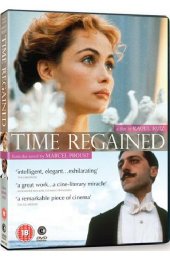





























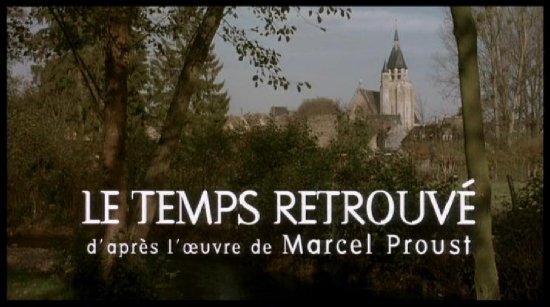
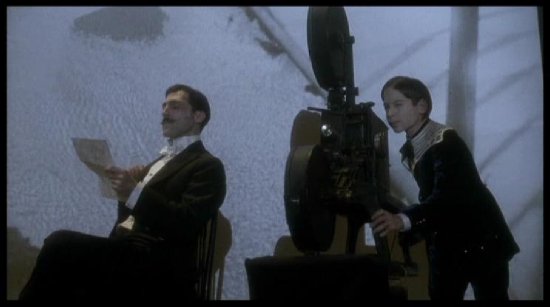
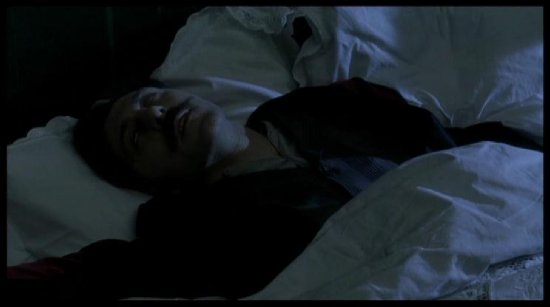
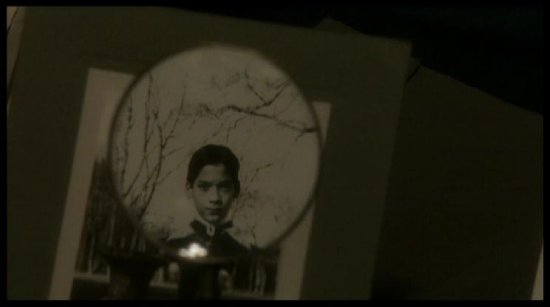
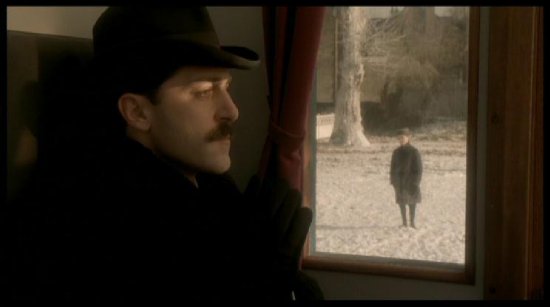
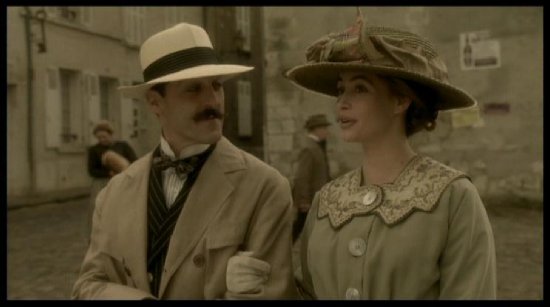

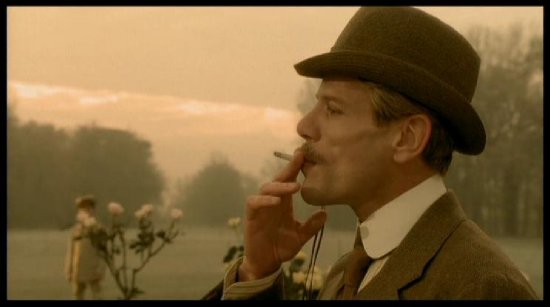
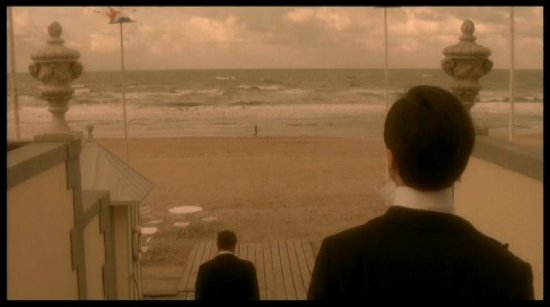
Your Opinions and Comments
Be the first to post a comment!